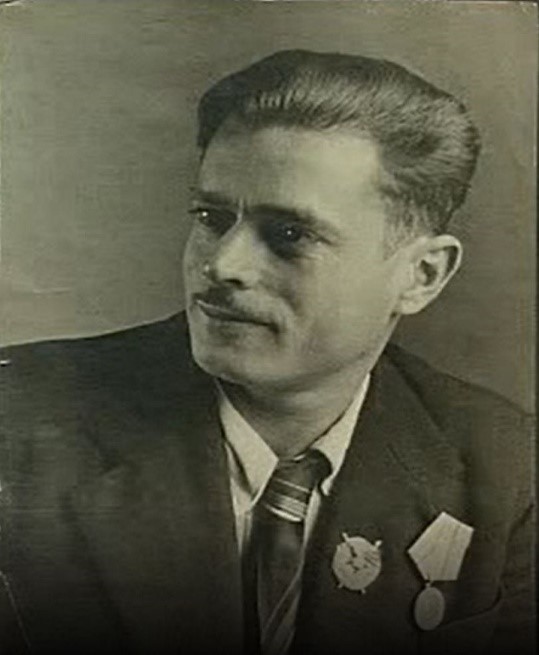Emmauel Grabovetskii was born in 1912 in Simferopol, the Crimea. His father Markus (or Mordecai, according to other sources), a native of Vilna, had settled in the Crimea prior to Emmanuil's birth. He was a lithographer by trade, and in the 1930s he worked at a print shop in Simferopol. Emmanuil's mother died when he was six years old, and his father remarried. Emmanuil thus had a full sister, Esther, and a half-brother, Leonid. Markus was religiously observant, while his two wives were less so. At the age of fourteen, Emmanuil dropped out of school and began to work. In 1932, he was drafted into the Red Army, and discharged two years later. In 1934-37, he worked at the editorial office of the Krymskii Komsomolets newspaper.
On June 22, 1941, the Soviet-German War broke out. On July 23, 1941, Emmanuil was drafted into the Red Army. He was attached to the 48th Cavalry Division, as the commander of a T-40 light tank. The division was sent to the Isthmus of Perekop, with orders to stop the German offensive on the Crimea through the isthmus. However, the division failed at this task, and was forced to retreat. On November 4, 1941, after an abortive attempt to defend Alushta in southern Crimea, Colonel Basan Gorodovikov divided the remnants of his 71st Cavalry Regiment into two partisan units and ordered them to go up into the mountains. Grabovetskii was ordered to burn his tank and join the 2nd partisan unit, which was commanded personally by Basan Gorodovikov. There, Grabovetskii served as a machine gunner and as the unit's political commissar. He took part in dozens of military operations. In 1943, Grabovetskii spent several months in a rear hospital, suffering from shell-shock and pneumonia; after his return to the partisan zone in August 1943, he was appointed political commissar of the 21st Partisan Unit of the Northern Formation of the Crimean Partisans. In March 1944, Grabovetskii was seriously wounded; he was evacuated by plane to a hospital in the North Caucasus. For this reason, he did not take part in the liberation of his native Simferopol by the Red Army in mid-April 1944 – a fact which Grabovetskii would later regret. After being discharged from the hospital, Emmanuil did not return to active duty.
In the course of the war, Grabovetskii was awarded the Order of the Red Banner and the medals "For the Defense of Sevastopol" and "Partisan of the Patriotic War", 1st class. His highest military rank was that of senior sergeant. His father, stepmother, and siblings were killed under the German occupation.
After the war, Grabovetskii worked as a graphic designer and artist at various newspapers, and as a book illustrator. In 1963, he designed a monument to the Crimean partisans of the Soviet-German war, The Partisan Hat, which was erected at the 27th kilometer of the Simferopol-Alushta highway. In 2001, he immigrated to Israel. Emmanuil Grabovetskii died in 2007 in Netanya.







